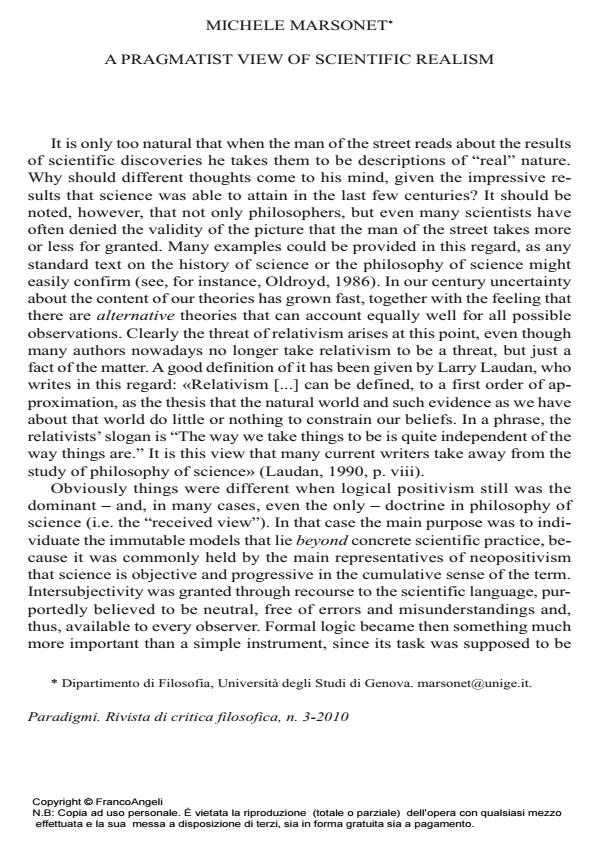A Pragmatist View of Scientific Realism
Journal title PARADIGMI
Author/s Michele Marsonet
Publishing Year 2010 Issue 2010/3
Language English Pages 8 P. 89-96 File size 270 KB
DOI 10.3280/PARA2010-003007
DOI is like a bar code for intellectual property: to have more infomation
click here
Below, you can see the article first page
If you want to buy this article in PDF format, you can do it, following the instructions to buy download credits

FrancoAngeli is member of Publishers International Linking Association, Inc (PILA), a not-for-profit association which run the CrossRef service enabling links to and from online scholarly content.
Scientific realism is a theme in which the originality of pragmatist positions clearly emerges. Nicholas Rescher argues that natural science can indeed validate a plausible commitment to the actual existence of its theoretical entities. Scientific conceptions aim at what really exists in the world but only hits it imperfectly and "well off the mark". Rescher’s aim is to replace Charles S. Peirce’s "long-run convergence" theory of scientific progress with a more modest position geared to increasing success in scientific applications, especially in matters of prediction and control. We can never assume that a particular scientific theory gives us the true picture of reality, since we know perfectly well from the history of science that, in a future we cannot actually foresee, it will be replaced by a better theory. There is indeed no reason to think that our particular scientific outlook on reality is absolute from the cognitive viewpoint. It must be relativized because of the interaction between the world on the one hand and human beings who investigate it on the other. Both our input and Nature’s play a fundamental role in the outcome of our investigation.
Keywords: Fallibilism, Interaction, Relativism, Rescher, Scientific Realism
Michele Marsonet, A Pragmatist View of Scientific Realism in "PARADIGMI" 3/2010, pp 89-96, DOI: 10.3280/PARA2010-003007